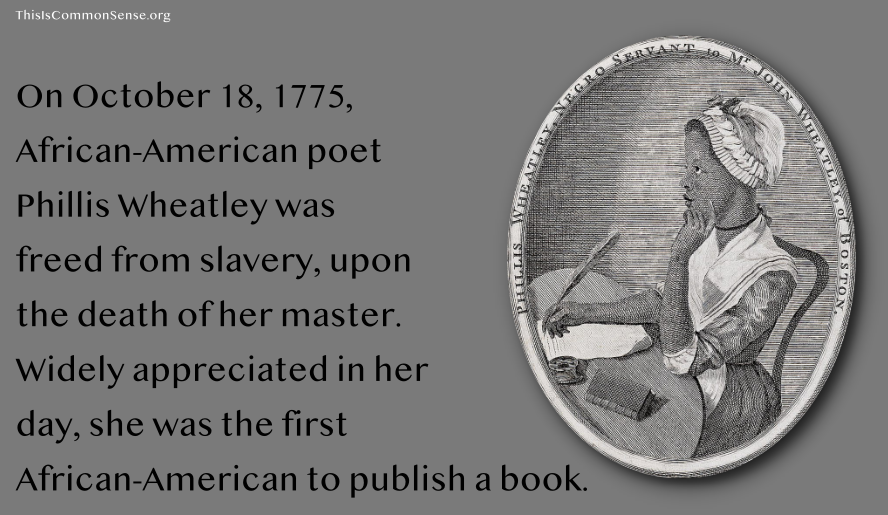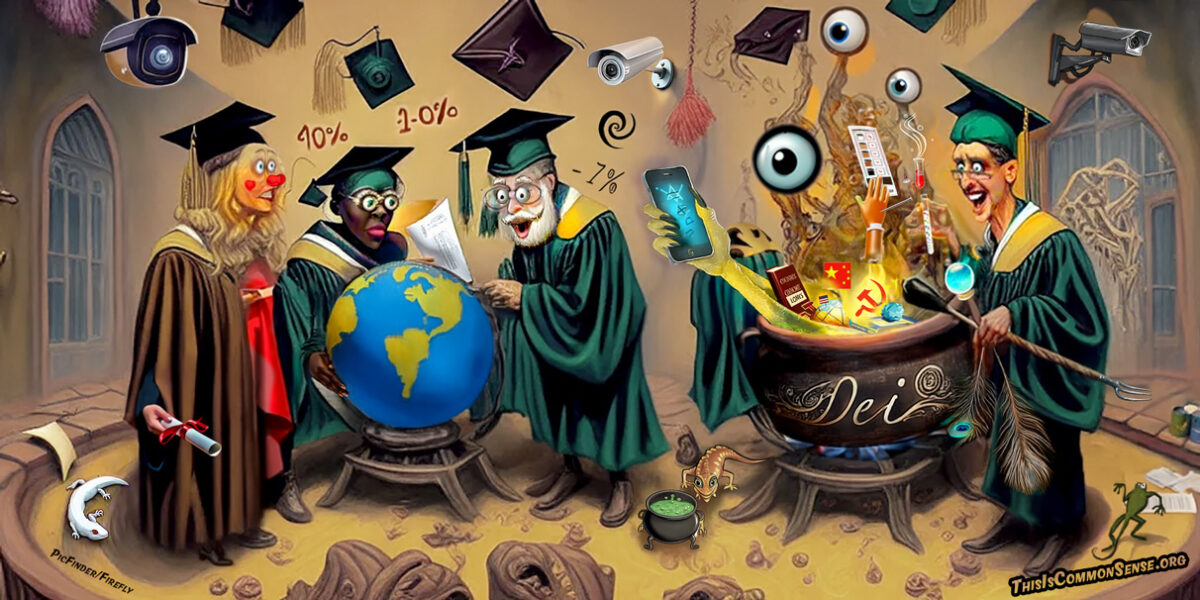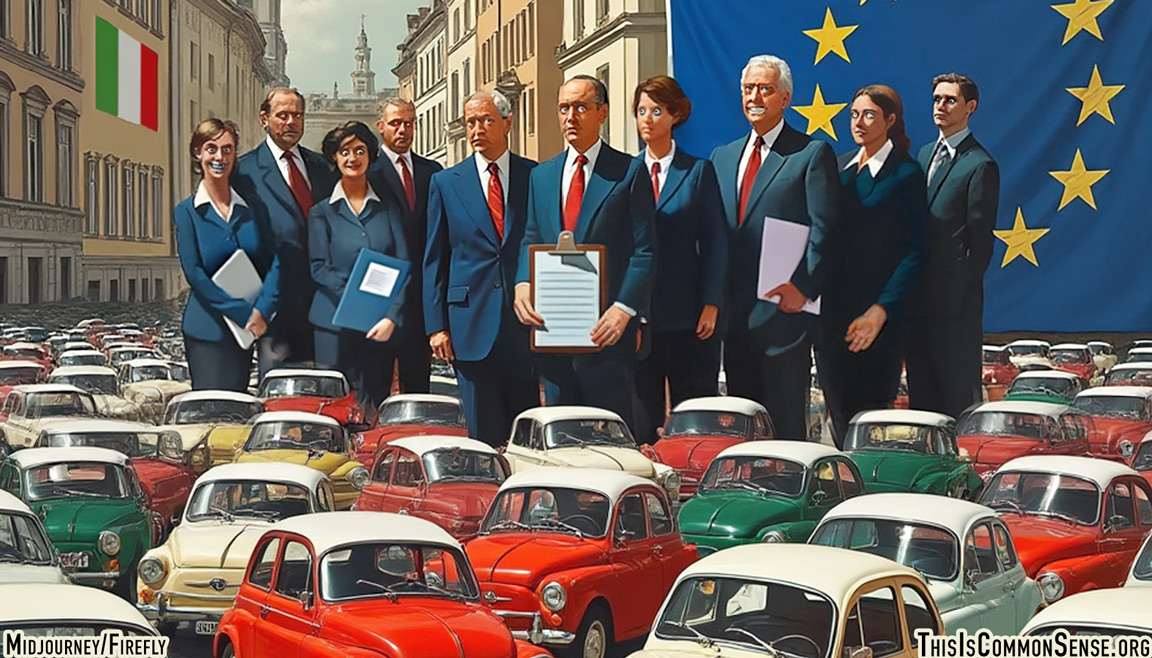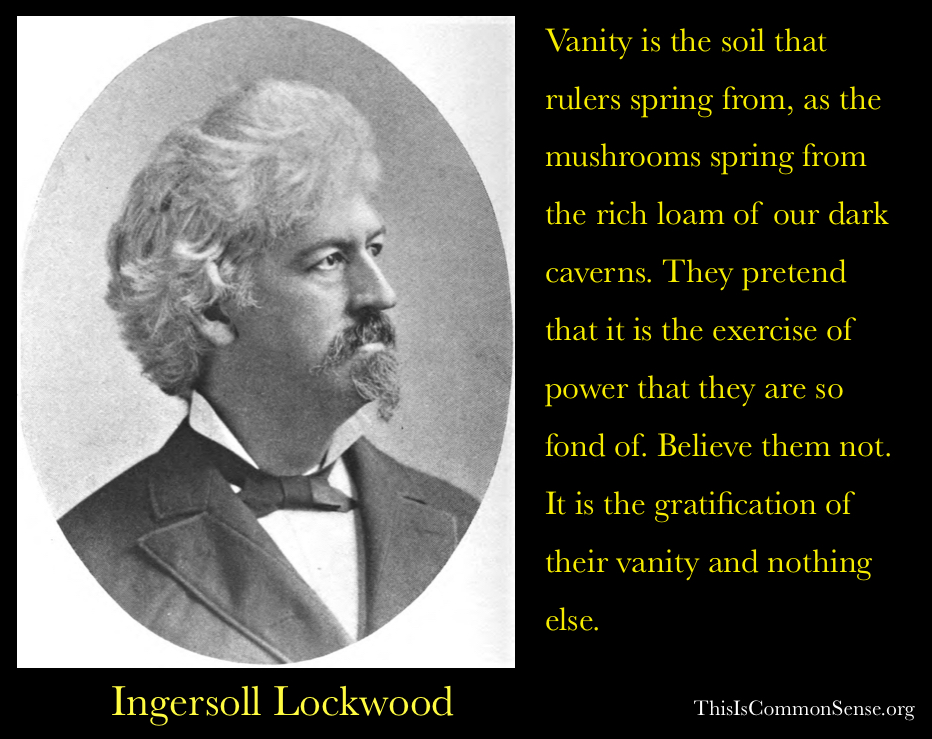On October 18, 1775, African-American poet Phillis Wheatley was freed from slavery, upon the death of her master. Widely appreciated in her day, she was the first African-American to publish a book.
An Auctorial First



That’s how you cook up the latest leftist madness.
According to the wizards running Columbia University, deliberately race-neutral policies are discriminatory if they have a “disproportionate impact.”
Columbia has updated its antidiscrimination policy about bad things you can do on campus that might get you investigated and sanctioned. The revised policy declares that one bad thing is “having a neutral policy or practice that has a disproportionate and unjustified adverse impact on actual and/or perceived members or associates of one Protected Class more than others.”
This, the policy asserts, “constitutes Discrimination” — with a capital D.
Those “protected classes” make up a formidable list. If the idea is that treating another person abusively subjects one to penalties, why not just say this? Then no groups need be listed.
But Columbia University seems to find focusing on discriminatory nondiscrimination a more productive way to spend its time than coping with unambiguous racial and ethnic hatred on campus.
Columbia is among the schools that has responded to vicious harassment of Jewish students with little more than pro forma protest. Even as a Columbia representative tells USA Today that “calls for violence have no place at Columbia,” anti-Israel and anti-Jewish students keep calling for violence. Will they be kicked out?
Eliana Goldin, a Jewish student at the school, says that the administration is well aware of “the credible threat to Jewish students, and they’re still playing both-sideism.”
Which strikes me as Discrimination with a Capital D.
This is Common Sense. I’m Paul Jacob.
Illustration created with PicFinder and Firefly
—
See all recent commentary
(simplified and organized)

Now this conjunction of an immense military establishment and a large arms industry is new in the American experience. The total influence — economic, political, even spiritual — is felt in every city, every Statehouse, every office of the Federal government. We recognize the imperative need for this development. Yet we must not fail to comprehend its grave implications. Our toil, resources, and livelihood are all involved. So is the very structure of our society. In the councils of government, we must guard against the acquisition of unwarranted influence, whether sought or unsought, by the military-industrial complex. The potential for the disastrous rise of misplaced power exists and will persist. We must never let the weight of this combination endanger our liberties or democratic processes. We should take nothing for granted. Only an alert and knowledgeable citizenry can compel the proper meshing of the huge industrial and military machinery of defense with our peaceful methods and goals, so that security and liberty may prosper together.
President Dwight D. Eisenhower, Farewell Address (January 17, 1961).

“The date was October 17, 1909 — the fiftieth anniversary of John Brown’ famous (some say infamous) raid of the federal armory and arsenal at Harpers Ferry, Virginia, which ended with the deaths of most of Brown’s small band of men and led to the execution of Brown, making him the most celebrated martyr to the cause of abolition.” So begins The Secret Six: The True Tale of the Men Who Conspired with John Brown (1995), by Edward J. Renehan, Jr.
As the author goes on to explain, it was a big occasion, with many ceremonies, including an inconspicuous one “not far from the site of the engine house where John Brown’s enterprise ended in defeat, a small group of aging abolitionists held a quiet prayer meeting — anxious not to be taken much notice of.” But in Concord, Massachusetts, the “most poignant exercise in memory” took place: “the surviving remnants of the Secret Six, that small, enigmatic cabal of northern aristocrats who financed John Brown’s strange adventure.”
Those attending this meeting were two conspirators, Thomas Wentworth Higginson (December 22, 1823 – May 9, 1911) and Franklin Sanborn (December 15, 1831 – February 24, 1917), as well as Julia Ward Howe (May 27, 1819 – October 17, 1910), widow of a third conspirator, Dr. Samuel Gridley Howe (November 10, 1801 – January 9, 1876). Not present, because long dead, were Reverend Theodore Parker (August 24, 1810 – May 10, 1860), Gerrit Smith (March 6, 1797 – December 28, 1874), and George Luther Stearns (January 8, 1809 – April 9, 1867).
Print out a commemorative poster:


The government of Italy is making known its unhappiness with a looming ban on sales of gas-powered vehicles, supposed to happen by 2035. The mandate has been imposed by the European Union, of which Italy is a member.
The transition is to be attended by formal review of how things are progressing toward the goal of eliminating gas cars. One is scheduled for 2026. Italy wants it to happen sooner.
Italy’s industry minister, Adolfo Urso, has indicated that his government will soon formally request this early review. Everyone understands that this is not because the current government of Italy is in a hurry to stamp its imprimatur on the EU’s plans.
Urso says: “We believe it’s absolutely necessary to modify the direction of EU industrial policy. The automotive sector is the one where a change from the Green Deal is most required.”
Prime Minister Giorgia Meloni has called the decision to outlaw gas-powered vehicles “self-destructive.”
Meanwhile, demand for electric cars has slumped in Europe and the U.S. as the inconveniences and risks become better known. These include the cars’ still very high cost, their tendency to freeze up in very cold weather, the greater frequency with which their tires must be changed, the difficulties of recharging, the difficulties of putting out the fires when the cars catch fire.
May Italy show the way out of the debacle and let’s hope the rest of the EU follows.
This is Common Sense. I’m Paul Jacob.
Illustration created with Midjourney and Firefly
—
See all recent commentary
(simplified and organized)

Vanity is the soil that rulers spring from, as the mushrooms spring from the rich loam of our dark caverns. They pretend that it is the exercise of power that they are so fond of. Believe them not. It is the gratification of their vanity and nothing else.
Ingersoll Lockwood, Baron Trump’s Marvelous Underground Journey (1889).